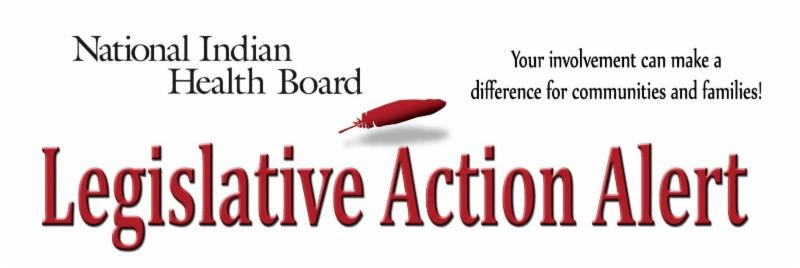Bipartisan House Coalition Releases TribalHealth Data Improvement Act
Bill Addresses Longstanding Issues in Tribal Access to Public Health Data
On Friday August 7, 2020, multiple members of the House Energy and Commerce Committee (E&C) introduced pivotal new legislation to address chronic challenges faced by Tribal Nations and Tribal Epidemiology Centers (TECs) in accessing federal healthcare and public health surveillance datasystems. Led by Representative Gianforte (R-MT) and Representative Lujan (D-NM), and joined by Representative Mullin (R-OK), Representative O’Halleran (D-AZ), Representative McMorris Rodgers (R-WA), and Representative Ruiz (D-CA), the Tribal Health Data Improvement Act would do the following:
- Require the Department of Health and Human Services (HHS), within 30 days of the Tribal Health Data Improvement Act becoming law, to give direct access to all data related to health care and public healthsurveillance programs and services to Tribal Nations, Indian HealthService, and Tribal Epidemiology Centers
- Require the Centers for Disease Control and Prevention (CDC) to give technical aid to Tribes and Tribal Epidemiology Centers for improving health statistics
- Require CDC to engage in consultation with Tribes, Tribalorganizations, the Centers for Medicare and Medicaid Services (CMS) Tribal Technical Advisory Group (TTAG), and the CDC/ATSDR TribalAdvisory Committee (TAC) and then develop guidelines for States and local health agencies on improving the quality and accuracy of birth and death record data for American Indians and Alaska Natives
- Require CDC to enter into cooperative agreements with Tribes, Tribalorganizations, urban Indian organizations, and Tribal Epidemiology Centers to address misclassification and undersampling of American Indians/Alaska Natives on birth/death records and in healthcare/public health surveillance systems
- Encourage states to enter into data sharing agreements with Tribes and Tribal Epidemiology Centers
As sovereign governments, Tribal Nations are inherent public healthauthorities that provide vital public health services to their citizens and communities. Under the Indian Health Care Improvement Act, TECs were also designated as public health authorities. Guidance from HHS defines public health authorities as:
An agency or authority of the United States government, a State, a territory, a political subdivision of a State or territory, or Indian tribe that is responsible for public health matters as part of its official mandate, as well as a person or entity acting under a grant of authority from, or under a contract with, a public health agency.
Entities designated as a public health authority, as clarified in HHS guidance, are entitled to protected health information:
for the purpose of preventing or controlling disease, injury, or disability. This would include, for example, the reporting of a disease or injury; reporting vital events, such as births or deaths; and conducting public health surveillance, investigations, or interventions
Despite Tribal Nations being inherent public health authorities and TECs being designated as such under federal law, for many years Tribes and TECs have faced immense challenges in exercising their authority. State and local health departments, and the CDC, have failed to honor the authorities of Tribes and TECs in carrying out their essential public health functions. Back in 2015, the CDC released an issue brief documenting some of the challenges that TECs face in exercising their public health authority.
Similarly, there are pervasive issues regarding the quality and accuracy of health data concerning American Indians and Alaska Natives (AI/ANs). Over the years, multiple Tribal reports and peer-reviewed research studies have demonstrated rampant misclassification of AI/ANs on birth and death records, and in disease surveillance systems, in addition to chronic undersampling of AI/AN populations in public health disease surveillance data sets. For example, a 2007 study on rates of HIV diagnoses among AI/ANs across five states found a 30% misclassification rate. Similarly, a 2019 study looking at all-cause mortality data among AI/ANs in Oklahoma found a 29% misclassification rate on death certificates from 1999 to 2015.
These systemic barriers contribute to the invisibility of AI/AN healthdisparities in the mainstream public, and directly infringe on Tribal sovereignty and self-governance.
The COVID-19 pandemic has shed an even larger spotlight on the gaps in Tribal and TEC public health data access and quality, galvanizing support for a legislative solution. During a June 23 hearing before House Energy and Commerce, several Committee members including Representative Lujan (D-NM) demanded answers from CDC Director Redfield on why TECs had not received COVID-19 data from the agency despite their public healthauthority. In early July, twenty-six bipartisan members of Congresssubmitted a letter HHS Secretary Azar and CDC Director Redfield outlining their strong concerns with the lack of direct Tribal access to COVID-19 data. These efforts helped spark momentum for legislation to address these longstanding concerns.
NIHB strongly supports the Tribal Health Data Improvement Act, and is working to have this legislation attached to the next COVID-19 pandemic relief package.
HHS Small Ambulatory Program Awards $55 Million to 15 Tribes and Tribal Organizations (Indian Health Service)
Indian Health Service Announces New Deputy Director for Quality Health Care and Enterprise Risk Management (Indian Health Service)
Federal Emergency Management Agency (FEMA)
White House Office of Management and Budget (Joe Biden Administration)
Tuba City Regional Health Care Corporation (Arizona, Navajo Nation)
Oklahoma City Indian Clinic (OKCIC)
Indian Health Service (Department of Health and Human Services)
Navajo Nation Town Hall (Arizona, New Mexico, Utah)
Navajo Nation (Arizona, New Mexico, Utah)
Tribal organizations statement on advance appropriations for Indian Health Service
Indian Health Service Statement on Advance Appropriations (Department of Health and Human Services)
Indian Health Service (Department of Health and Human Services)
Indian Health Service (Department of Health and Human Services)
Navajo Nation (Arizona, New Mexico, Utah)

